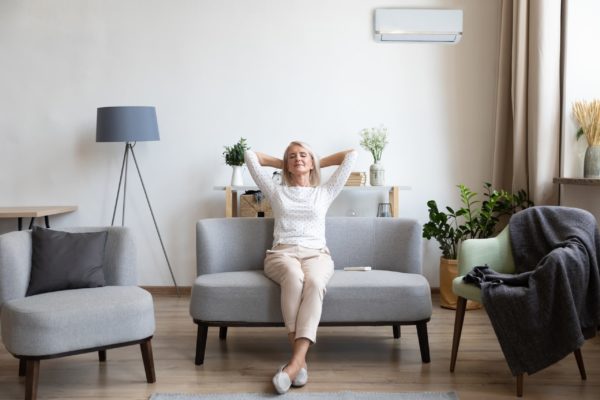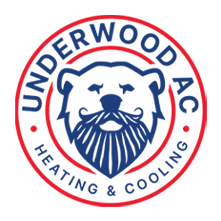
As a homeowner, you probably give a lot of thought to the indoor temperature of your home. After all, it’s one of the main factors that influence your comfort levels. But did you know that humidity plays a role in indoor comfort as well?
While humidity doesn’t get as much attention as temperature, it can be an equally key factor in how comfortable you feel indoors. Here’s a look at how humidity affects indoor comfort and what you can do to ensure optimal levels in your home.
What Is Humidity?
Humidity is the amount of water vapor present in the air. It’s often expressed as a percentage of the maximum amount of water vapor that air can hold at a given temperature. For example, if the air is holding half of the water vapor it’s capable of holding, the humidity would be 50%.
This concept is important to understand because the maximum amount of water vapor that air can hold varies depending on the temperature. Warm air can hold more water vapor than cold air. That’s why humid summers can feel so oppressive whereas dry winters can feel so harsh. When the humidity levels in your home are out of balance, it can make indoor conditions feel very uncomfortable.
Factors That Influence Indoor Humidity Levels
The ideal indoor humidity level for comfort is between 30% and 50%. But in reality, homes often experience much higher or lower levels than that.
There are many possible contributors to poor indoor humidity levels, one being the weather. If it’s humid outside, your home is more likely to have high humidity levels as well. That’s because humid air can seep into your home through cracks and openings. Low indoor humidity levels are also common in winter because the cold air outside can cause the water vapor indoors to condense, leading to dry indoor conditions.
Another factor that can influence indoor humidity levels is the activities taking place inside your home. For example, cooking, showering, and doing laundry can all add water vapor to the air and raise indoor humidity levels. In homes with poor ventilation, this can cause indoor humidity levels to quickly become too high.
Effects of High and Low Indoor Humidity Levels
Both high and low indoor humidity levels can have a negative impact on your comfort and your health. High indoor humidity levels can lead to feelings of stuffiness and can make it harder to cool your home. Even if the temperature is set at a comfortable level, high humidity can make it feel much warmer than it actually is. High indoor humidity levels can also lead to condensation on surfaces and encourage the growth of mold, mildew, and dust mites. This can result in respiratory issues that may be particularly pronounced in people who suffer from allergies or asthma.
Meanwhile, low indoor humidity levels can cause dryness in the air, which can lead to a number of different issues. For example, low humidity can cause static electricity, dry skin and lips, and cracked furniture. In extreme cases, it can even cause respiratory problems as the airway passages become irritated and inflamed from a lack of necessary moisture in the air.
How to Balance Indoor Humidity Levels
There are a few different ways to balance indoor humidity levels, depending on whether your problem is too much or too little humidity. If you’re struggling with high indoor humidity levels, the first step is to improve ventilation in your home. This can be done by opening windows and doors when weather permits and running exhaust fans in the kitchen and bathroom. You may also want to invest in a whole-house fan with the help of a qualified HVAC technician, which can help to circulate air and reduce humidity levels.
In addition, be sure to schedule regular maintenance appointments with an HVAC professional. They will help to keep the evaporator coil clean in your central AC system so that it can properly remove moisture from the air.
If low humidity levels are the problem, you may want to consider investing in a humidifier. There are many different types of humidifiers available on the market, so be sure to choose one that is appropriate for the size of your home. You’ll also want to make sure that it is properly maintained to prevent the growth of mold and bacteria.
Ultimately, if you suspect that suboptimal humidity levels are affecting the comfort of your home, the best course of action is to contact an HVAC service provider. At Underwood AC LLC, we’re experts in indoor air quality and can help you to identify the source of your problem and find a solution that works for you. From indoor air quality to heating repair and AC installation, we have extensive experience assisting Davenport homeowners like you with a variety of HVAC needs, so be sure to give us a call today.

